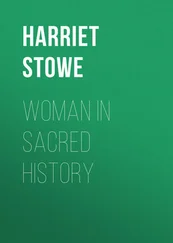Harriet Stowe - My Wife and I. Harry Henderson's History
Здесь есть возможность читать онлайн «Harriet Stowe - My Wife and I. Harry Henderson's History» — ознакомительный отрывок электронной книги совершенно бесплатно, а после прочтения отрывка купить полную версию. В некоторых случаях можно слушать аудио, скачать через торрент в формате fb2 и присутствует краткое содержание. ISBN: , Издательство: Иностранный паблик, Жанр: foreign_prose, foreign_language, на английском языке. Описание произведения, (предисловие) а так же отзывы посетителей доступны на портале библиотеки ЛибКат.
- Название:My Wife and I. Harry Henderson's History
- Автор:
- Издательство:Иностранный паблик
- Жанр:
- Год:неизвестен
- ISBN:http://www.gutenberg.org/ebooks/47874
- Рейтинг книги:5 / 5. Голосов: 1
-
Избранное:Добавить в избранное
- Отзывы:
-
Ваша оценка:
- 100
- 1
- 2
- 3
- 4
- 5
My Wife and I. Harry Henderson's History: краткое содержание, описание и аннотация
Предлагаем к чтению аннотацию, описание, краткое содержание или предисловие (зависит от того, что написал сам автор книги «My Wife and I. Harry Henderson's History»). Если вы не нашли необходимую информацию о книге — напишите в комментариях, мы постараемся отыскать её.
My Wife and I. Harry Henderson's History — читать онлайн ознакомительный отрывок
Ниже представлен текст книги, разбитый по страницам. Система сохранения места последней прочитанной страницы, позволяет с удобством читать онлайн бесплатно книгу «My Wife and I. Harry Henderson's History», без необходимости каждый раз заново искать на чём Вы остановились. Поставьте закладку, и сможете в любой момент перейти на страницу, на которой закончили чтение.
Интервал:
Закладка:
At this moment I met Miss Dotha Brown, the deacon's eldest daughter, a rosy-cheeked, pleasant-faced girl, to whom I had been introduced the week before. Instantly she was clothed upon with a new interest in my eyes, and I saluted her with empressement ; if not the rose, she at least was the clay that was imbibing the perfume of the rose; and I don't doubt that my delight at seeing her assumed the appearance of personal admiration. "What a charming Sunday," I said, with emphasis. "Perfectly charming," said Miss Brown, sympathetically.
"You have an interesting young friend staying with you, I observe," said I.
"Who, Miss Ellery? oh, yes. Oh! Mr. Henderson, she is the sweetest girl!" said Dotha, with effusion.
I didn't doubt it, and listened eagerly to her praises, and was grateful to Miss Brown for the warm invitation to "call" which followed. Miss Ellery was to make them a long visit, and she would be so happy to introduce me.
That evening Miss Ellery was a topic of excited discussion in our entry, and Jim Fellows plumed himself largely on his Mount Desert experiences, which he related in a way to produce the impression that he had been regarded with a favorable eye by the divinity.
I was in a state of silent indignation, at him, at all the rest of the boys, at everybody in general, being fully persuaded that they were utterly incapable of understanding or appreciating this wonderful creature.
"Hal, why don't you talk?" said one of them to me, when I had sat silent, pretending to read for a long time; "What do you think of her?"
"Oh, I'm no ladies' man, as you all know," I said, evasively, and actually pretended not to have remarked Miss Ellery except in a cursory manner.
Then followed a period of weeks and months, when that one image was never for a moment out of my thoughts. By a strange law of our being, a certain idea can accompany us everywhere, not stopping or interrupting the course of the thought, but going on in a sort of shadowy way with it, as an invisible presence.
The man or woman who cherishes an ideal is always liable to this accident, that the spiritual image often descends like a mantle, and invests some very ordinary person, who is, for the time being, transfigured, – "a woman clothed with the sun, and with the moon under her feet." It is not what there is in the person, but what there is in us , that gives this passage in life its critical power. It would seem as if there were in some men, and some women, preparation for a grand interior illumination and passion, like that hoard of mystical gums and spices which the phenix was fabled to prepare for its funeral pile; all the aspiration and poetry and romance, the upheaval toward an infinite and eternal good, a divine purity and rest, may be enkindled by the touch of a very ordinary and earthly hand, and, burning itself out, leave only cold ashes of experience.
Miss Ellery was a well-bred young lady, of decorous and proper demeanor, of careful religious education, of no particular strength either of mind or emotion, good tempered, and with an instinctive approbativeness that made her desirous to please every body, which created for her the reputation that Miss Brown expressed in calling her "a sweet girl." She was always most agreeable to those with whom she was thrown, and for the time being appeared to be, and was sincerely interested in them; but her mind was like a well-polished looking-glass, retaining not a trace of anything absent or distant.
She was gifted by nature with wonderful beauty, and beauty of that peculiar style that stirs the senses of the poetical and the ideal; her gentle approbativeness, and the graceful facility of her manner, were such as not at least to destroy the visions which her beauty created. In a quiet way she enjoyed being adored – made love to, but she never overstepped the bounds of strict propriety. She received me with graciousness, and I really think found something in my society which was agreeably stimulating to her. I was somewhat out of the common track of her adorers; my ardor and enthusiasm gave her a new emotion. I wrote poems to her, which she read with a graceful pensiveness and laid away among her trophies in her private writing-desk. I called her my star, my inspiration, my light, and she beamed down on me with a pensive purity. "Yes, she was delighted to have me read Tennyson to her," and many an hour when I should have been studying, I was lounging in the little front parlor of the Brown house, fancying myself Sir Galahad, and reading with emotion, how his "blade was strong, because his heart was pure;" and Miss Ellery murmured "How lovely!" and I was in paradise.
And then there came wonderful moonlight evenings – evenings when every leaf stirring had a penciled reproduction flickering in light and shade on the turf; and we walked together under arches of elm trees, and I talked and quoted poetry; and she listened and assented in the sweetest manner possible. All my hopes, my plans, my dreams, my speculations, my philosophies, came out to sun themselves under the magic of those lustrous eyes. Her replies and utterances were greatly in disproportion to mine; but I received them, and made much of them, as of old the priests of Delphi did with those of the inspired maiden. There must be deep meaning in it all, because she was a priestess; and I was not backward to supply it.
I have often endeavored to analyze the sources of the illusion cast over men by such characters as that of Miss Ellery. In their case the instinctive action of approbativeness assumes the semblance of human sympathy, and brings them for the time being into the life-sphere, and under the influence, of any person whom they wish to please, so that they with a temporary sincerity reflect back the ideas and feelings of others. There is just the same illusive sort of charm in this reflection of our own thoughts and emotions from another mind, as there is in the reflection of objects in a placid lake. There is no warmth and no reality to it; and yet, for the time being, it is often the most entrancing thing in the world, and gives back to you the glow of your own heart, the fervor of your imagination, and even every little flower of fancy, and twig of feeling, with a wonderful faithfulness of reproduction.
It is not real sympathy, because, like the image in the lake, it is only there when you are present; and when you are away, reflects with equal facility the next comer.
But men always have been, and to the end of time always will be, fascinated by such women, and will suppose this mere reflecting power of a highly polished surface to be the sympathetic response for which the heart longs.
So I had no doubt that Miss Ellery was a woman of all sorts of high literary tastes and moral heroisms, for there was nothing so high or so deep in the aspirations of poets or sages in my readings to her, that could not be reflected and glorified in those wonderful eyes.
Neither are such women hypocrites, as they are often called. What they give back to you is for the time being a sincere reflection, and if there is no depth to it, if it passes away with the passing hour, it is simply because their natures – smooth, shallow, and cold – have no deeper power of retention.
The fault lies in expecting more of a thing than there is in its nature – a fault we shall more or less all go on committing till the great curtain falls.
I wrote all about her to my mother; and received the usual cautionary maternal epistle, reminding me that I was yet far from that goal in life when I was warranted in asking any woman to be my wife; and suggesting that my taste might later with maturity; warning me against premature commitments – in short, saying all that good, anxious mothers usually say to young juniors in college in similar circumstances.
In reply, I told my mother that I had found a woman worthy the devotion of a life – a woman who would be inspiration and motive and reward. I extolled her purity and saintliness. I told my mother that she was forming and leading me to all that was holy and noble. In short I meant to win her though the seven labors of Hercules were to be performed seven times over to reach her.
Читать дальшеИнтервал:
Закладка:
Похожие книги на «My Wife and I. Harry Henderson's History»
Представляем Вашему вниманию похожие книги на «My Wife and I. Harry Henderson's History» списком для выбора. Мы отобрали схожую по названию и смыслу литературу в надежде предоставить читателям больше вариантов отыскать новые, интересные, ещё непрочитанные произведения.
Обсуждение, отзывы о книге «My Wife and I. Harry Henderson's History» и просто собственные мнения читателей. Оставьте ваши комментарии, напишите, что Вы думаете о произведении, его смысле или главных героях. Укажите что конкретно понравилось, а что нет, и почему Вы так считаете.












